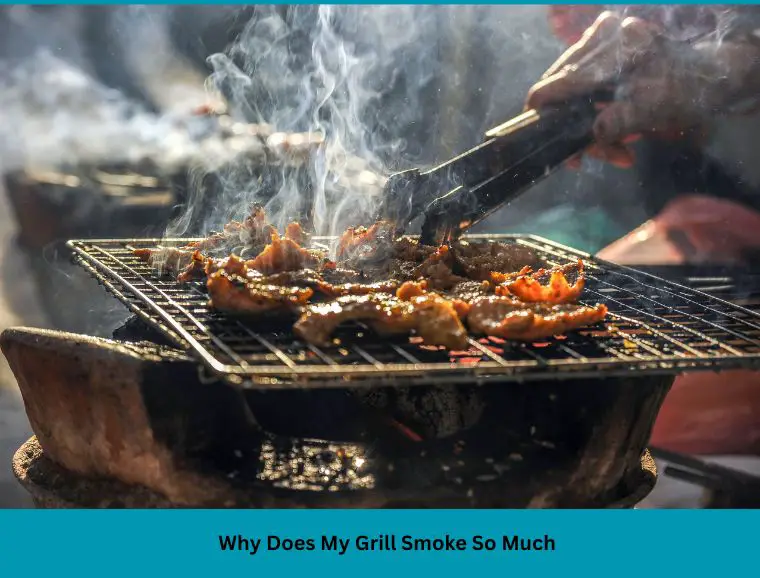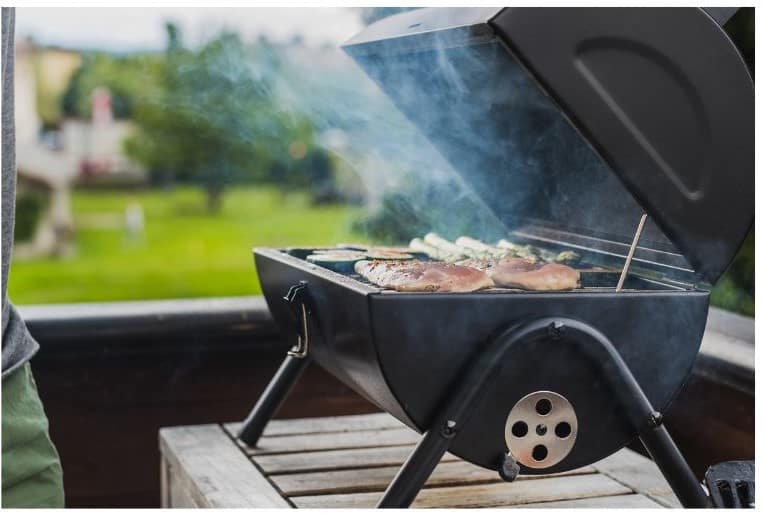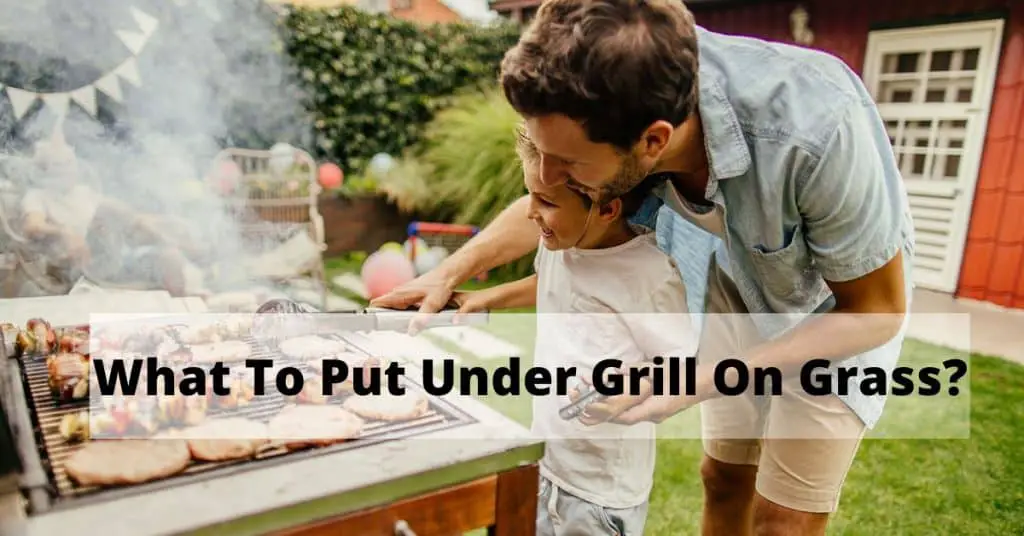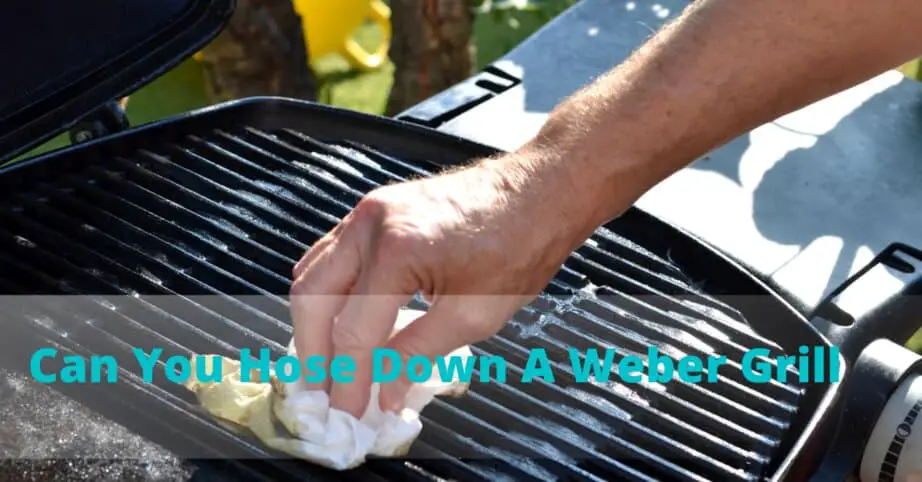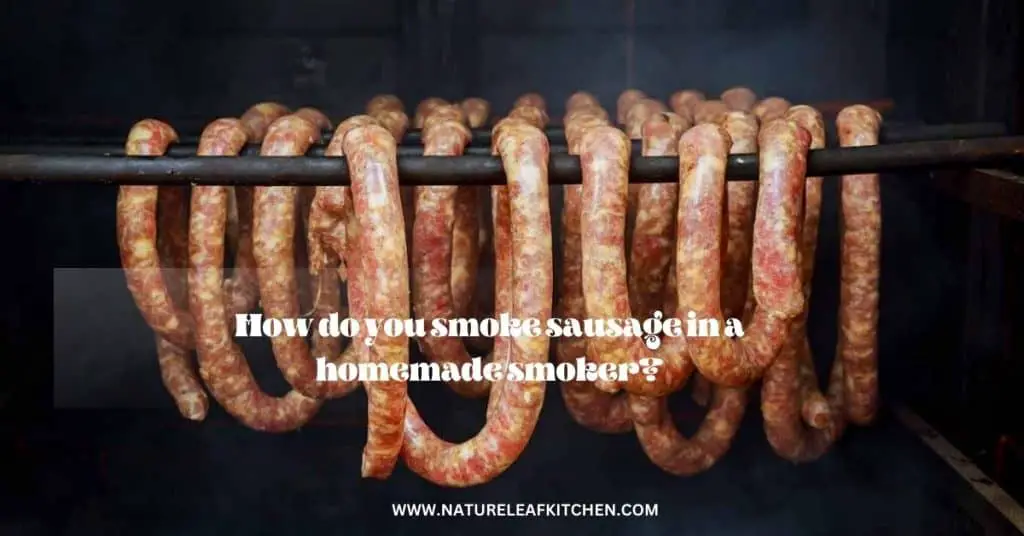Your grill might smoke excessively due to accumulated grease, food particles, or overly high heat. Unclean grill grates, especially with a build-up of old residue, can also contribute to the problem.
Grilling is a beloved method of cooking that offers a signature char and flavor, but excessive smoke can be a nuisance and a sign of underlying issues. A well-maintained grill should produce only a minimum amount of smoke, primarily from the drippings and fats hitting the heat source.
A smoking grill could be signaling that it’s time for a thorough clean-up or temperature adjustment. Regular maintenance, such as cleaning the grates, burners, and interior spaces, along with timely removal of ash and debris in charcoal grills, can greatly reduce smoke output. By understanding and mitigating the common causes of excessive smoke, you’ll not only improve the taste of your grilled dishes but also extend the lifespan of your grill.
Identifying The Culprits Behind Excessive Grill Smoke
Today, we dive into the smoke signals from your grill.
Let’s find out why your grill might smoke more than usual.
Common Causes Of Grill Smoke
- Dirty Grill Grates: Old food bits cause smoke.
- High Heat: Too much heat makes more smoke.
- Oil Buildup: Oil drips and smokes up.
- Moisture in Fuel: Wet charcoal or wood won’t burn clean.
- Poor Airflow: Without enough air, your grill smokes.
The Role Of Grease And Food Residue
Grease and leftovers are big smoke makers.
They burn and create thick smoke when you cook.
Cleaning them off means less smoke.
| Part | Role in Smoke | How to Manage |
|---|---|---|
| Grease | Burns and smokes | Clean regularly |
| Food Bits | Char and cause smoke | Brush off the grates |
Material Matters In Grilling
Grilling should be all about the flavorful sizzle, not excessive smoke. Materials play a huge role in this. They affect how much smoke your grill produces. Let’s dive into what materials mean for your grilling experience.
Types Of Grills And Smoke Production
The grill type you choose influences smoke levels. Here’s a quick rundown:
- Charcoal Grills: They produce more smoke because of the charcoal. This smoke adds flavor.
- Gas Grills: They create less smoke. They use clean-burning propane or natural gas.
- Pellet Grills: These grills use wood pellets and offer a smoky taste. But they manage smoke well.
- Electric Grills: Almost no smoke with these. They’re great for indoor use.
Effect Of Cooking Grates On Smoke
Cooking grates hold your food on the grill. Their material matters:
| Grate Material | Smoke Factor | Taste Addition |
|---|---|---|
| Cast Iron | More smoke | Rich flavors |
| Stainless Steel | Less smoke | Milder flavors |
| Porcelain-Coated | Moderate smoke | Balanced flavors |
The material can react with fats and juices, causing smoke. Cast iron retains heat but creates more smoke. Stainless steel is cleaner. Porcelain-coated grates create a middle ground.
The Impact Of Fuel On Smoke Levels
Do you often see billowing smoke when grilling? The type of fuel you use plays a huge role. Different fuels burn at various rates and temperatures. This variance affects the smoke output. Choosing the right fuel for your grill can significantly reduce excessive smoke.
Charcoal Quality And Smoke
Not all charcoal is created equal. High-quality charcoal produces less smoke. Look for lump charcoal or briquettes without additives. These burn cleaner and hotter, giving off minimal smoke.
Charcoal quality matters. Here’s a quick comparison:
| Type | Burn Time | Smoke Level |
|---|---|---|
| Lump Charcoal | Short | Low |
| Charcoal Briquettes | Long | Medium |
| Cheap Briquettes | Varies | High |
Pros And Cons Of Gas Vs. Wood
- Gas Grills:
- Easier to control the temperature
- Cleaner burn with less smoke
- Quick start-up and cool-down
- Wood Grills:
- The rich, smoky flavor
- More smoke output
- Longer heat-up time
Gas grills give you speed and convenience. Wood grills offer an authentic taste. It’s a trade-off. Thinking about the smoke level and flavor you want helps you choose.
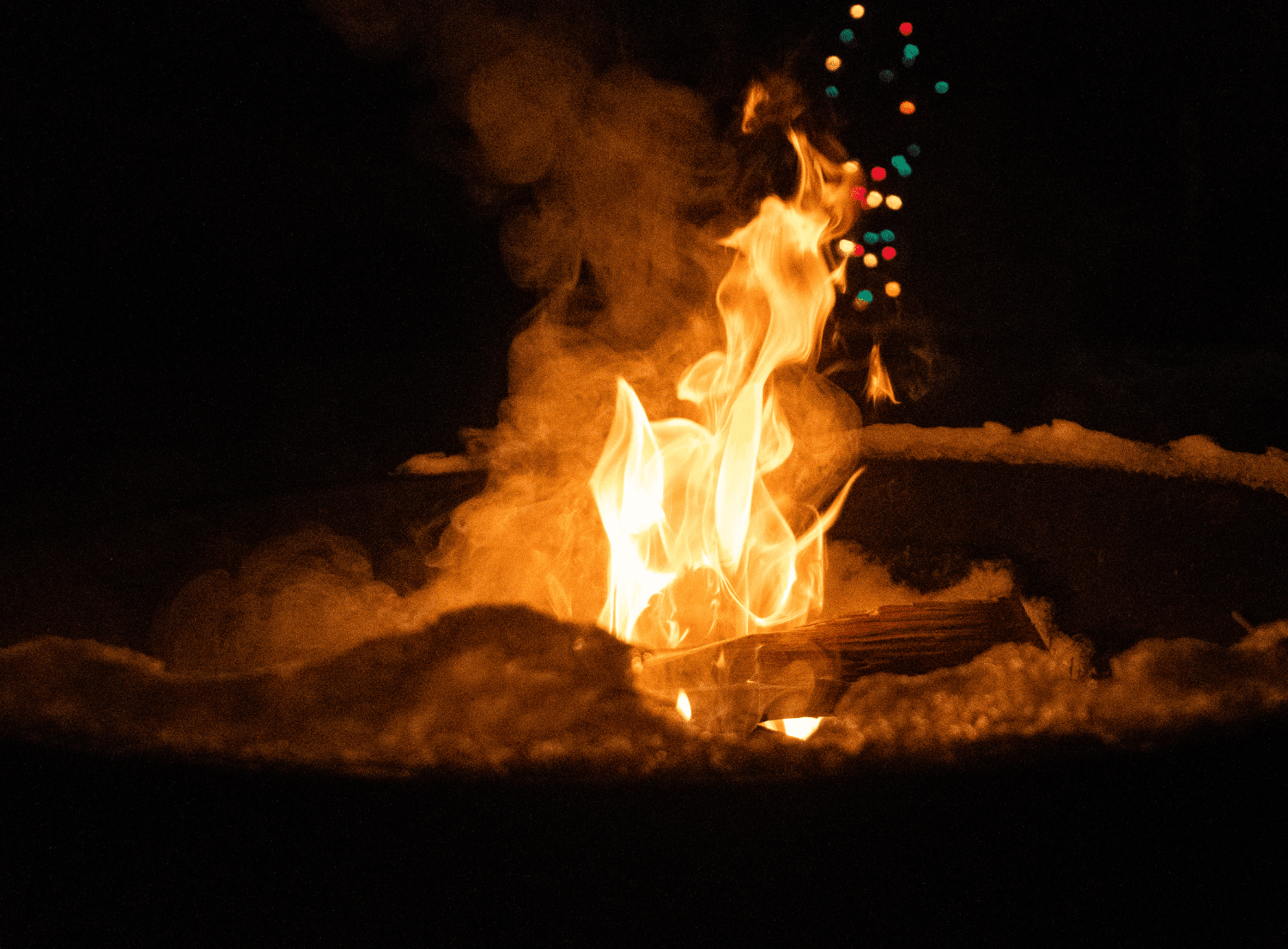
Credit: rocketfiretorch.com
Maintenance Strategies To Reduce Smoke
Excessive smoke from a grill can turn barbecuing into a teary affair. But, worry not! A few maintenance strategies can dramatically reduce smoke and keep your grilling sessions enjoyable. Understanding these tactics ensures a pleasant and smoke-free grilling experience.
Regular Cleaning Techniques
Cleanliness is crucial for a low-smoke grill. Over time, grills accumulate grease, food bits, and ash that can cause excessive smoke. Implement these easy cleaning steps to minimize smoke:
- Grate Scrubbing: After each use, scrub the grates with a grill brush to remove residue.
- Burn Off: Post-grilling, heat the grill for 10-15 minutes to burn off excess particles.
- Ash Disposal: For charcoal grills, regularly empty the ashtray to prevent blockages.
- Deep Clean: Bi-annually, deep clean your grill with soapy water and a brush.
Proper Grill Storage And Care
Storing your grill correctly also lessens smoke issues. Follow these care tips for optimal performance:
- Cover Up: Use a grill cover to shield against rust, dust, and moisture.
- Shelter: Store your grill in a dry, protected space when not in use.
- Check-Ups: Before grilling, check for rust or damage that can affect performance.
- Tight Connections: Ensure all parts, especially on gas grills, are secure to prevent leaks.
Grilling Techniques For Less Smoke
Does your backyard BBQ often look like a smoke signal gathering? Too much smoke can ruin a good grilling experience. But fret not! Apply the right grilling techniques and enjoy less smoke and more flavor.
Optimal Grilling Temperatures
Getting the temperature right is key to reducing smoke. Here’s what you need to know:
- Preheat your grill properly.
- Use a thermometer to check the temperature.
- Steaks and burgers love high heat, but not too high!
- Chicken and fish prefer a medium temperature.
- Vegetables and fruits need a gentle, low heat.
Controlling Airflow And Ventilation
Managing your grill’s airflow can cut down on unwanted smoke. Try these steps:
- Keep the lid open when lighting charcoal for better airflow.
- Adjust vents to control oxygen and temperature.
- Don’t choke the fire. Let it breathe for less smoke.
- Clean ash regularly to prevent blockages.

Credit: m.youtube.com
Creative Solutions And Alternatives
If your grill is smoking more than a steam train, don’t fret. Creative solutions and alternatives are here to save your barbecue. Let’s explore some innovative ways to reduce that pesky smoke.
Smoke-reducing Grill Accessories
Breathe easy with these nifty gadgets:
- Grill Fans: Clip-on fans that disperse the smoke.
- Drip Pans: Catch drippings to minimize flare-ups.
- Lid Holders: Keep lids ajar to control airflow.
- Grill Mats: Prevent food from sticking and smoking.
These accessories enhance your grilling experience. They keep your grill cleaner and your air cleaner.
Exploring Smokeless Grill Technology
Meet the future of grilling:
| Smokeless Grill Types | Key Benefits |
|---|---|
| Infrared Grills | Even heat with less smoke. |
| Indoor Electric Grills | Smoke-free, great for apartments. |
| Outdoor Electric Grills | Powerful grilling without the smoke. |
These grills offer a high-tech solution. They promise mouth-watering results minus the smoggy side effects.
Credit: www.traeger.com
Frequently Asked Questions For Why Does My Grill Smoke So Much
Why Is My New Grill Smoking Excessively?
New grills often smoke more due to manufacturing residues burning off. Ensure it’s properly cleaned and seasoned before use.
Can Food Residue Cause Grill To Smoke?
Yes, leftover grease and food particles can ignite, causing significant smoke. Regular cleaning after use helps to reduce this.
Does High Heat Make Grills Smoke More?
High heat can cause oils and fats to vaporize quickly, leading to more smoke. Use suitable temperatures for the food being cooked.
Conclusion
Wrapping up, and identifying the cause of excessive smoke from your grill is key to savory, smoke-free barbecues. Regular maintenance and proper fuel choice can make a world of difference. Embrace these tips for a cleaner, smoother grilling experience. Remember, a little smoke is normal, but a billow signals something’s amiss.
Grill smart, eat happy!

